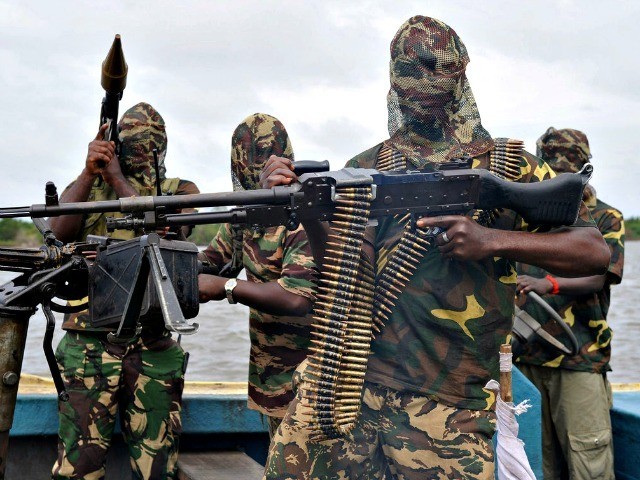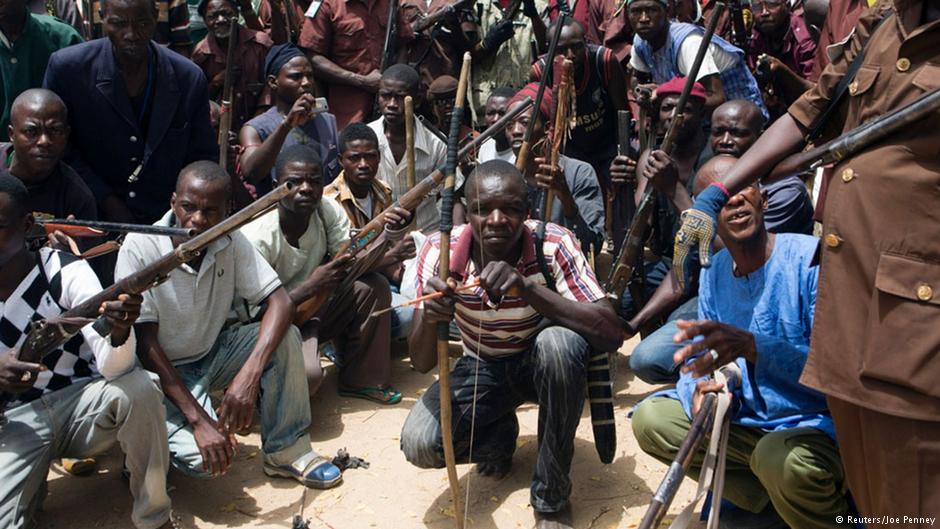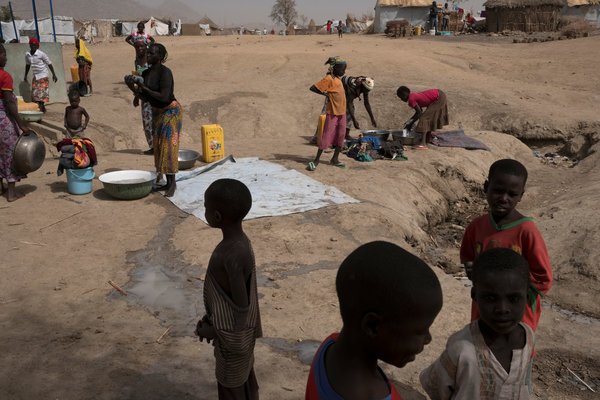They have only plundered food supplies in their recent attacks.
For weeks, the Islamic extremist group of Boko Haram, based in Nigeria and surrounding states has been terrorizing civilians to give up their meager food supplies. Although they continue to murder innocent people, they are no longer focusing on the gathering of hostages and aimless destruction of infrastructure—they are merely abducting all the available livestock in an attempt to earn a few days’ worth of subsistence.
For years, this terrorist group wreaked havoc in the African subcontinent, displacing at least 2 million people while killing hundreds of thousands of others in varied orchestrated attacks. Farmers have escaped their unsafe fields and villages, leaving behind desolate and barren villages with few people for the power hungry extremists to rule over. Most importantly, the militants have hardly any supplies to rob. They are, ultimately, falling victim to the hunger that was a child of their own violent imagination.

Image: Getty Images
“They need food. They need to eat. “They’re stealing everything,” said Midjiyawa Bakari, the governor of the Far North region of Cameroon.
In large parts of northeastern Nigeria and neighbouring Cameroon, markets and businesses have shut down for they haven’t anything to sell. If they do, they run low on customers, who are afraid of suicide bombers sent by the Boko Haram to crowded areas. Thousands of people are on the verge of starvation and famine. According to american researchers, the search for food has encouraged the Boko Haram to dig deeper into Cameroon, a state that was mostly safe earlier. Hence, attacks of this kind have become largely common in the areas bordering the Boko Haram base in the northeastern Nigeria. The fighters are forced to either find food supplies from the dry lands of Simbasa forests or raid nearby towns, most of which have been seized from their control by joint Nigerian and neighbourhood military exercises.
“Their supply routes are blocked. They’re hungry,” stated Brig. Gen. Rabe Abubakar, a spokesperson of the Nigerian military.

Image: Reuters
He added that earlier in the week, several dozens of armed fighters from the Boko Haram surrendered to the local police, along with captured women and children because ‘they have nowhere the go’. The military is expecting several more such actions in the coming days. As per the findings, the terrorist group is estimated to have stolen 4,200 cattle heads and 150 other animals like sheep and goats, along with farm tools like wheelbarrows. Moreover, they are abducting civilians to help them raid more villages and to aid the transfer of plundered goods from Cameroon back to Nigeria.
Almost 1.4 million people are living with inadequate food supplies. In Chad, most farmers have fled their border-side fields. “We’re looking at a large-scale crisis in very remote areas.This is not a today problem. This is a tomorrow problem and a next year problem unless it’s contained, and I don’t see it coming to a halt soon,” cautioned Denise Brown, the West and Central Africa regional director for the World Food Programme.
Despite their desperation, however, the armed fighters continue to participate in attacks of abominable proportions, killing and wounding tens of people on a daily basis. In the Far North region in Cameroon, small-scale hospitals, devoid of surgeons have now been occupied by international humanitarian organisations such as Doctors Without Borders, who treat hundreds of people for war wounds. 55,000 Nigerian refugees in Cameroonian camps are running low on water supply and at the same time, the low harvest from the last season is the only source of sustenance. Nearly 200,000 Cameroonian nationals have been forced to abandon their homes and take refuge in small, remote villages, often being crammed into modest huts with strangers. This makes the food crisis even more severe for Cameroon, which has seen the maximum refugee influx since the start of this rampage, which town markets staying shut for weeks together in fear of an attack; refugees from the religious war raging in the nearby Central African Republic are only adding to the economic pressures. Leaders are now holding grudges and asking refugees to return.

Image: Tyler Hicks/The New York Times
Cameroon, a state that has seen a massive dip in its tourism in the last four years, leaving thousands unemployed and a vibrant wildlife and natural landscape unappreciated, was accused by the United Nations leaders of repatriating thousands of refugees back to Nigeria at the end of last year. “They have lost everything. We cannot throw them back to unsafety,” commented Najat Rochdi, a UN humanitarian coordinator in Yaounde, the capital of Cameroon. Ever since, Cameroon has agreed to involve the UN in further plans of this kind. In addition, the food crisis has affected animals such as elephants and cows, with herdsmen having to take detours for the animals to find sufficient food.
Yet, a multinational effort, both military and aid, involving Nigeria, Cameroon, Chad, Niger and the US in an advisory capacity has driven several Boko Haram militants away from civilian areas and has seized artillery, arms and equipment used to build explosive mines. On the other hand, there are areas like Kerawa near the Cameroonian border, that have been attack repeatedly even after militants have been banished from there. In October 2015, a young man was publicly executed by the terrorists.
In a war that has caused devastation of gargantuan levels, this food crisis has only added to the people’s worries for survival, although it may weaken the deadly Boko Haram.
Source: The Times of India
Tags: Boko Haram boko haram in cameroon Cameroon







